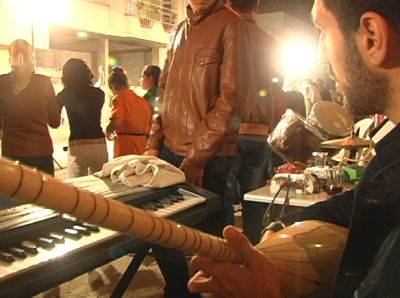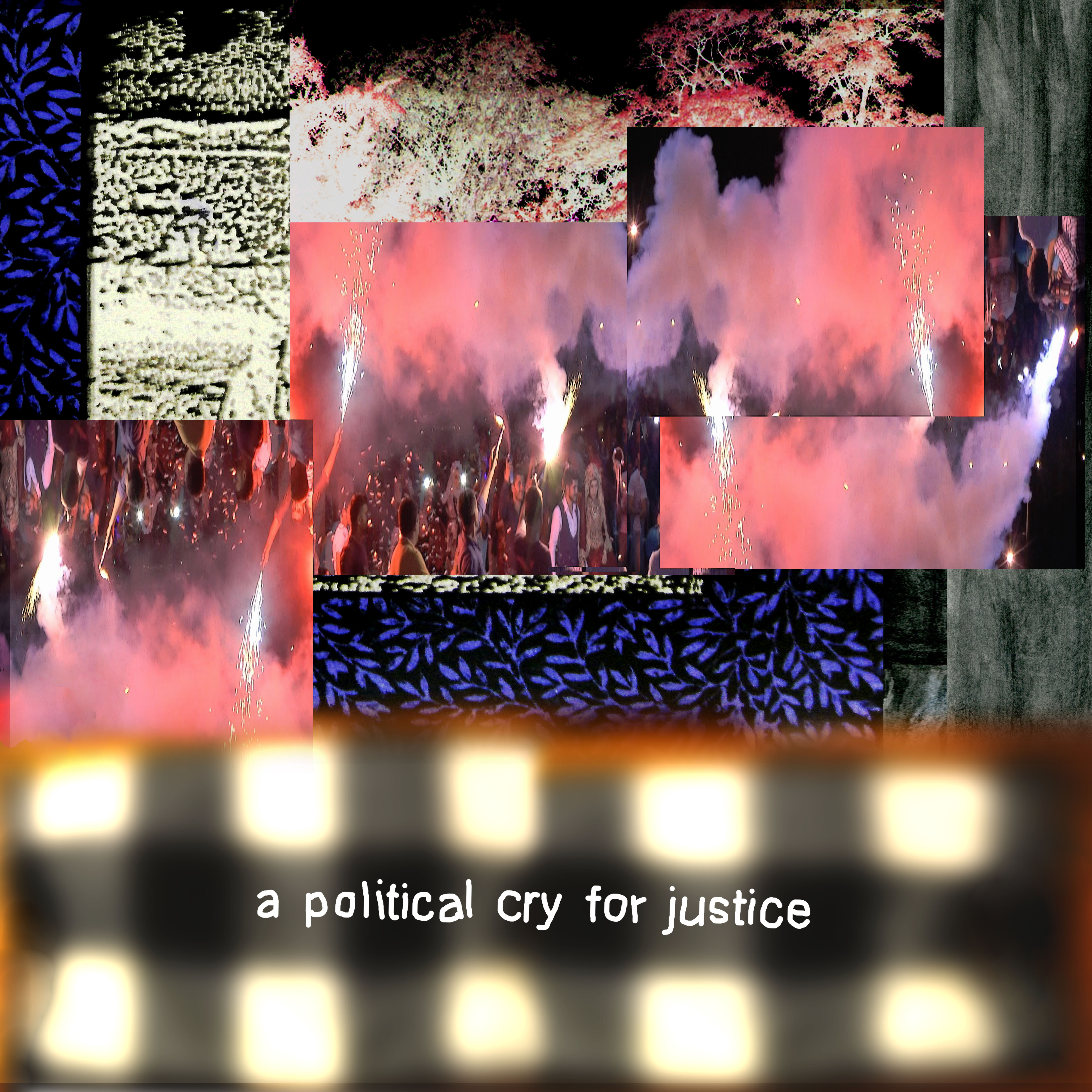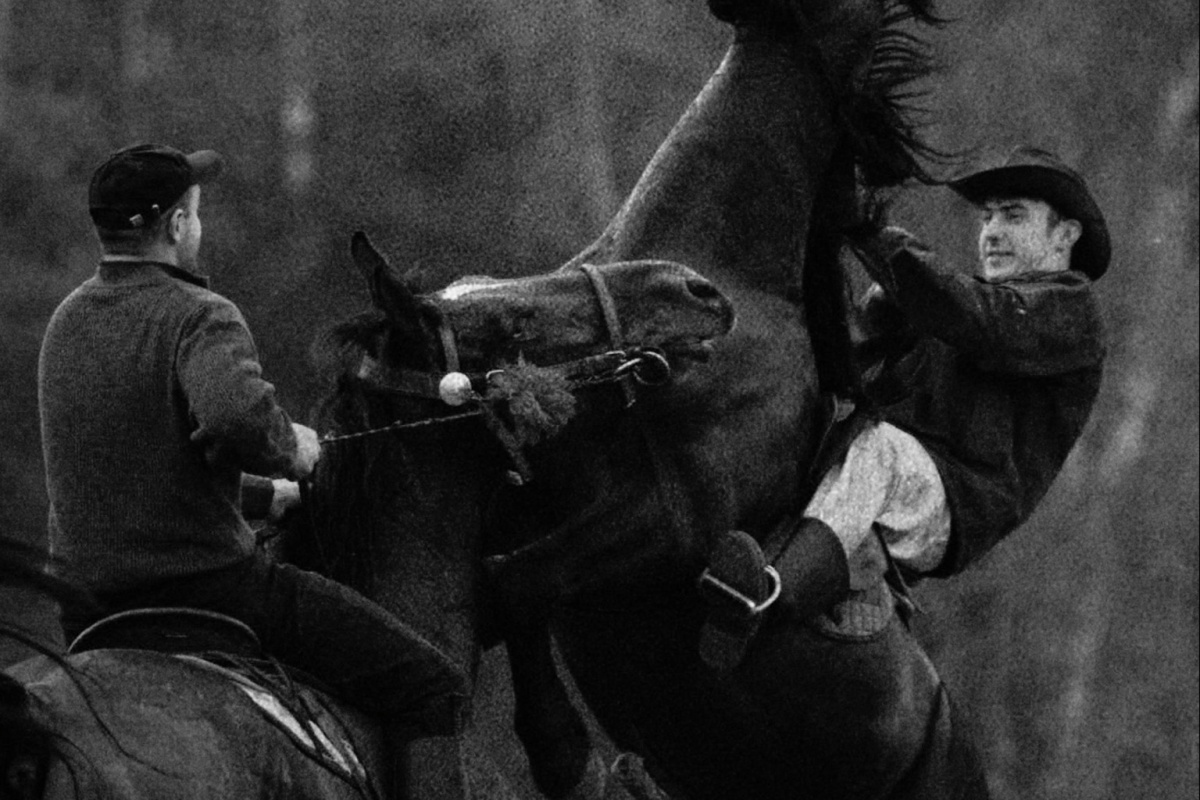
A Yearning for Coherence
Love songs tend to be seen as unpolitical. Granî however, the energetic Kurdish wedding music merging folk with electronic music, contains significant political meanings. An essay by Martin Stokes on the power of hidden dissent cultures, inspired by George Mürer’s film Her Bijî Granî.
→ Check all articles of this special
→ Download PDF with introduction and table of contents
The bus hurtles over a mountain pass, scruffy town outskirts flash by, flat rooftops, rocks, grass. A frenetic, electric pulse, and a young man’s urgent singing. «I went on Facebook, I saw my beloved’s face, I go to her page, I can’t see her picture, I send her a friend request… she won’t accept, some kid from Derik will steal her away, some kid from Germany will steal her away», sings a protagonist in the film Her Bijî Granî by George Mürer. Social media promises connection and desire’s end, but only multiplies the anguish – we all know that.
Here though, the beloved – seen but not seen, all powerful but passive, the threat to the social order but also the key to its reproduction – has significant historical, literary, and political meanings. Love is a persistent undercurrent in the Kurdish wedding music in Southeast Anatolia (today’s Türkiye) whose key figures are portrayed in the film. Love takes shape as a yearning for coherence – and change.
If We Loved One Another
No easy matter, given the states of emergency, the grinding poverty, the migration, and the cultural marginalization that have been the norm in these Anatolian borderlands. «If we just loved one another we would be the richest people in the world» observes Mohammed Ali Tejo, an old and tired voice in the film. «If only we didn’t just stand around abject, accepting those rotten thieving bastards.»
The 17th century Ottoman love lyric, fed from many sources, took shape in the emerging tensions of absolutism and empire. Filtering through an Anatolia torn by famine, migration, and millenarianism, it became a mystical as well as political cry for justice. Such cries demand response, of course. This is a fundamental ethical principle of vocalization. But they can attract the wrong kind of attention. In Anatolia they would seem, as a basic condition of their survival, to have dispersed over time in complex fields of translation and what I would label «trans-sonicization»: The movement of repertoires from voice to instrument and from instrument to instrument.

A Message of Endurance
In the distorted and layered «elektro» soundscapes of granî at Kurdish weddings, Mürer’s interlocutors tell him they hear the kilam (poetic narrations) of the dengbêj – dramatic accounts of the allure and threat of the beloved to the tribal order. They also tell him they can hear more contemporary lyrics, like Armenian Kurdish singer Aram Dikran’s «Ez Kal Kirin li Ciwani». Dikran’s parents fled the Armenian genocide to Qamishlo, in what became Syria. Dikran (1934–2009) himself lived for a while in Soviet Armenia, and then Athens. He performed in Diyarbakır/Amed, his parents’ home, in 2008, to huge crowds. He wanted to be buried there, but, in the event, the Turkish authorities refused permission.
Dikran’s song speaks overtly of love’s loss of hope and vitality. It underlines a message of endurance, passed from generation to generation, and exchanged between the many communities here that have reason to feel harshly treated by history. «You made me old with your beautiful youth/But I was young, as you know well/You’ve scattered the leaves of my tree/And brought autumn, even though it was spring.» A vibrant culture of dissent hides in plain sight at these borderland weddings.
The film «Her Bijî Granî» by George Mürer was officially selected at the Norient Film Festival NFF 2021. See full program here.
This text is part of Norient’s essay publication «Nothing Sounds the Way It Looks», published in 2021 as part of the Norient Film Festival 2021.
Bibliographic Record: Rhensius, Philipp. 2021. «Editorial: NFF 2021 Essay Collection.» In Nothing Sounds the Way It Looks, edited by Philipp Rhensius and Lisa Blanning (NFF Essay Collection 2021). Bern: Norient. (Link).
Biography
Links
Published on January 04, 2021
Last updated on June 27, 2023
Topics
Snap




